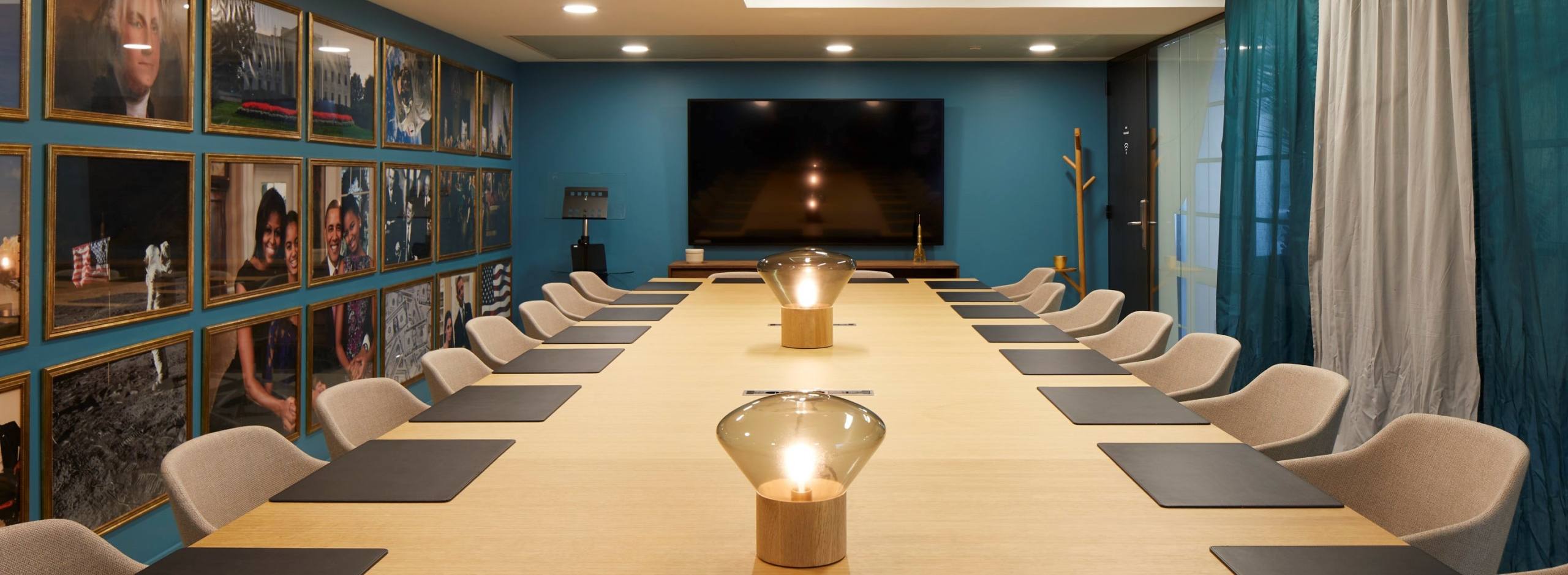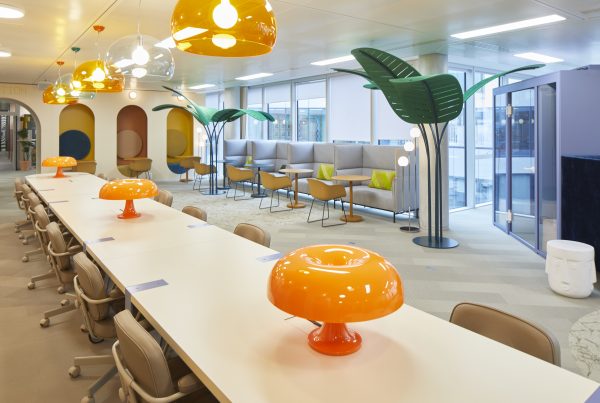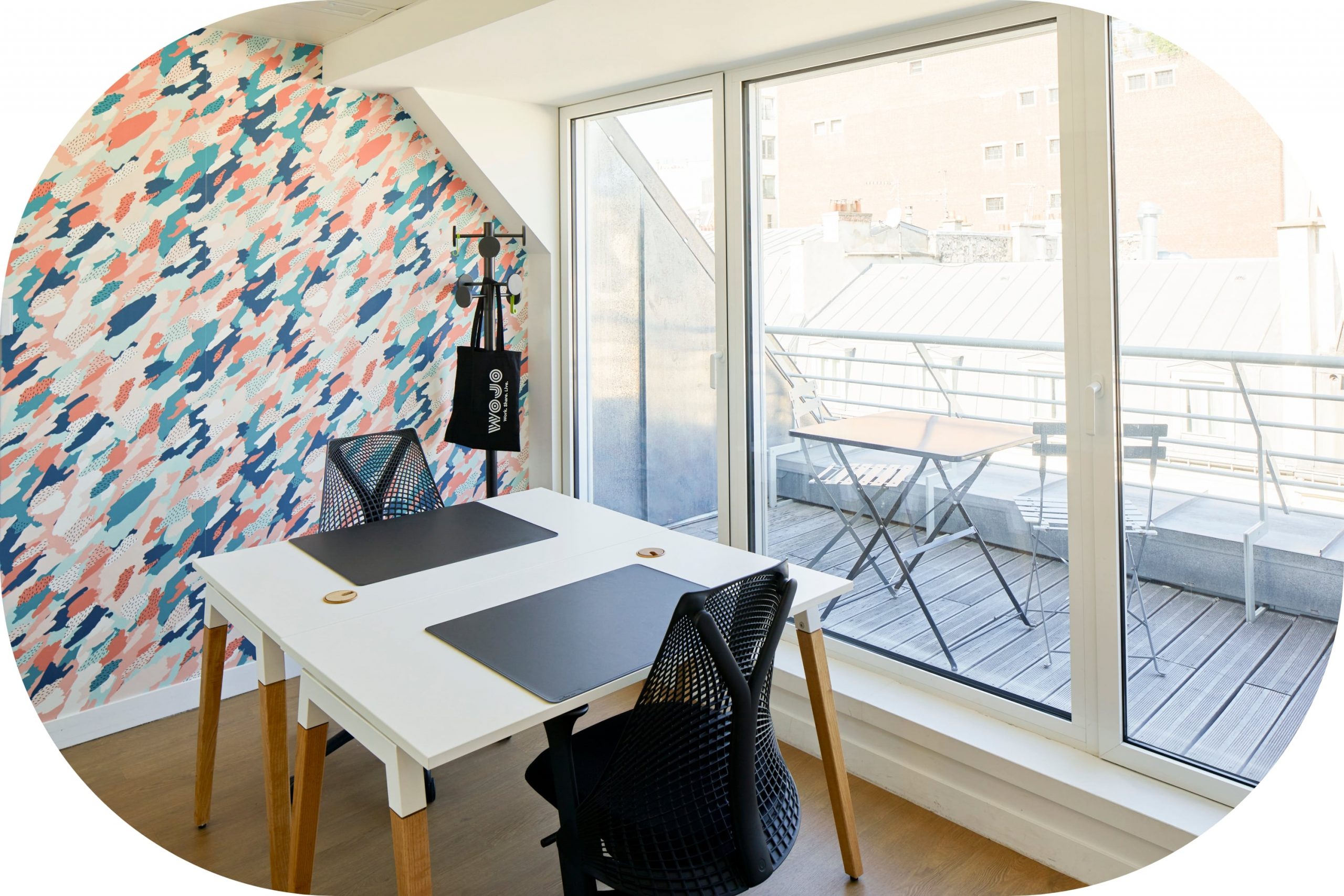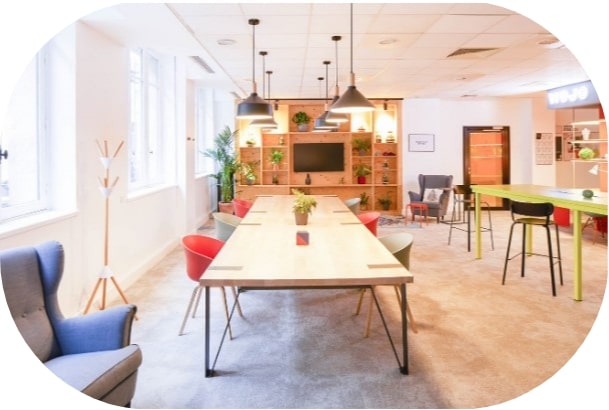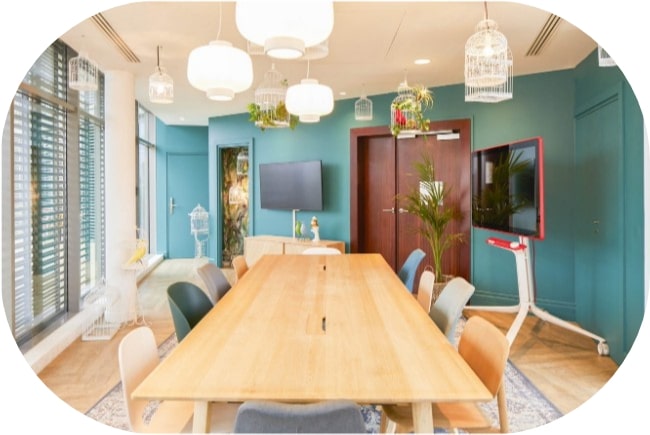The office of the future will be flexible! This is one of the things that companies are asking for today. Confinement and the economic crisis have changed their expectations. Configuration, type of lease, location, not to mention the new service needs, the corporate real estate cards are being reshuffled. Wojo wanted to know what the feedback from the field was: Farid Elomri, its VP of sales, Paul Marie-Anne, Key account manager, and Jean-Ignace Poncelin de Raucourt, business development manager, answered.
The office of the future will be optimised
Unsurprisingly, the number one concern of companies (in addition to health safety issues) is the budget allocated to real estate expenses. The second largest item of expenditure for companies before the crisis, it is in the crosshairs.
On average, over the course of a year, a workstation is actually occupied only 50% to 70% of the time (Deloitte, June 2020). Logically, following the confinements, companies in search of savings are therefore looking closely at this expense item. “Today, no one wants to pay for unoccupied m². Nine out of ten companies are now looking to rent fewer workstations than they have employees,” explains Jean-Ignace. And they usually divide the number of workstations they want by… two: 100 employees will have to be divided among 50 places in the future.
Optimisation requires a certain amount of organisation, as well as a new management style. But companies are ready to take the plunge.
The office of the future will be flexible
Because they have learned from the previous months and no longer want their real estate costs to drag them down even further in the event of a crisis. Today more than ever, they are asking to be able to adapt their workspace to their needs or requirements. “This thinking is now general, regardless of the sector of activity (excluding production services, of course) or the size of the company, from very small businesses to those of the CAC 40,” Farid explains.
The office of the future will have to be agile, modular, tailor-made…: a number of posts that can be adjusted upwards or downwards, the possibility of paying only for what is used, a contract with no commitment but which still protects.
In addition, many companies ask for a mix of private offices and coworking spaces, either in the same building or in the location of their choice (near the employee’s home, for example),” says Jean-Ignace. In some cases, there is no longer an assigned office at all. Teams rotate indifferently between private offices and coworking. The flex office is becoming more widespread. »
This desire for flexibility is therefore contractual and organisational, but also geographical.
Read also : A flexible office or nothing !
The office of tomorrow will be nomadic
Already in April this year, 74% of CFOs (Gartner, April 2020) wanted to make telework a permanent feature of their business. This trend is not surprising, as the vast majority of companies (and again, whatever their size) have already signed telework agreements ranging from 1 to 3 days/week.
“Companies have realised that teleworking also allows them to guarantee a certain continuity of activity in the event of a crisis. They tell us that they are continuing to digitise in order to be prepared for all eventualities“, comments Paul Marie-Anne.
Rarer but nonetheless very real, some companies have even gone full remote. No more fixed office at all, in favour of the home office (demand for coworking spaces remains rare, due to the need for confinement). This organisation generates a new need, namely the occasional consumption of workspaces that allow teams to meet once a week or once a month. This can be the same meeting room, booked on a recurring basis, or on the contrary, a space rented each time in a different location, to break the routine.
The office will be serviced
A new organisation, therefore, which raises many questions: “Companies are setting up the rotation of their teams between office and home office, but they are groping around. They have difficulty anticipating their employees’ uses and specifying their needs. They are therefore in need of advice, management tools, monitoring, in order to be able to ensure the reservation of workstations, but also to monitor performance indicators. All this is new for many of them,” says Farid.
Another new feature is the interest in (immediately) taking charge of bringing workplaces into line with the current health protocol. “All companies ask about the measures taken before choosing their office: the subject is discussed in 100% of cases,” continues Paul. This concern coincides with employees’ expectations, since 47% stated last October that the first thing to be done to make them want to return to work in person would be to better guarantee their health safety (OpinionWay – October 2020).
Finally, even if it is not the priority of the moment, there is a definite appetite for a new type of office, the office as a service. Companies want to delegate the management of the building, but also offer services to their employees or improve the employee experience and their brand image.
The office of the future will be responsible for
“Clearly, for large groups, optimising their office space is an opportunity to reduce not only the company’s real estate footprint by reducing surface area, but also their carbon emissions by optimising employee travel,” says Farid.
“In doing so, they also improve the employee experience as they reduce their commuting time a few days a month, thus contributing to a better work-life balance,” says Paul.
A responsible strategy, therefore, in which employees see similarities with the sharing economy. 59% of them think that choosing an à la carte workspace, mixing office and remote work, is in line with the principles of the collaborative economy. They also think that such a choice reflects positively on the brand image with the general public (OpinionWay, October 2020).
When will the way in which a company is housed be seen as a real lever of attractiveness? To be continued.
Perspectives
While the main location of companies is unlikely to change, as it remains one of the non-negotiable criteria for companies, Farid believes that “we are likely to move towards smaller headquarters in favour of a network of ‘satellite’ workspaces, located in strategically placed and well-served locations, made up of a mix of private offices, coworking & home office”.
“An expectation that is easy to meet, since in order to meet the demand for geographical flexibility, Wojo is now able to rent a private office in any city in France! “says Jean-Ignace.
Even if companies have other preoccupations at the moment, the generalisation of telework will also raise the issue of the feeling of belonging and the corporate culture. Management methods will have to evolve, in particular by relying on service-oriented, lively and friendly workspaces in which teams can identify with each other. The office of the future will therefore be an augmented office, enriched with all sorts of services to make people want to come and work in person.
In brief
It’s happening: office real estate is being reinvented to coincide with the office of the future. Because there will inevitably be a before, with a workstation allocated to each employee from Monday to Friday, and an after, with a flexible office two to three days a week, while the rest of the time the workstation will be shared between home-office and third places! So many economic, environmental and human benefits that should satisfy everyone…

